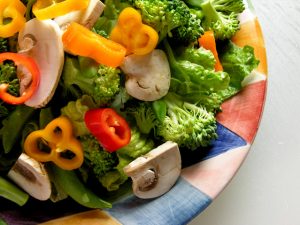Tips to Motivate Your Kid to Eat Healthy
Finding out about nutrition and health from an early age is vital for children. Kids tend to develop their dietary habits and other ways of life from the environments they are brought up in. Nutrition education can affect the way kids see food and eating routines. Akansha Jhalani Sinha from bon happetee teaches this nutrition education including how you can motivate your children to eat healthy, homemade meals and avoid processed foods.
 Why is nutrition education crucial?
Why is nutrition education crucial?
The commission on youth weight problems discovered that 41 million under-fives are obese or overweight. Likewise, World Bank information states that India has one of the world’s greatest demographics of children experiencing poor nutrition and malnutrition. Nutrition education is essential to prevent health complications, and breaking the bank with expensive health insurance (not to mention the various other insurances like personal indemnity insurance you’re going to be paying when you start your own nutrition and fitness educational business for children). It can be costly enough raising a kid with a stable diet and weight, but imagine if your kid suddenly doesn’t fit into their youth basketball uniforms anymore and you need to buy another one, that is going to burn a hole in your pocket for sure.
Many parents need their kids to eat healthily but pushing them can trigger a kid to eat less and dislike particular foods. Limiting kids may also make them wish to eat more. Forcing ruins a kid’s natural cravings, and the kid establishes no control over his or her eating routines. This will lead to them overindulging or under-eating as she or he matures. Nutrition education assists kids to fight the unlimited aggressive marketing strategies pushed upon families by businesses offering sweet deals. Nutrition education deals with the processed treats and junk food choices by teaching children the connection between eating healthily and living well. Fun activities and graphics can be used to teach kids about combining the right foods.
Here are a couple of actions you can take to influence your kid to eat right:

Fridge it ideal: Ditch the processed foods and equip your kitchen and refrigerator with a range of yummy, wholesome choices. That way, every dietary option your kid makes in your house will be a healthy one.
Introduce healthy foods: Introduce healthy and new foods in your meals every week while continuing to set out foods that they are familiar with.
Let the kids join: Allow the kids to help you prepare meals or set up foods on a plate. For more youthful kids, veggies might taste much better when formed into a smiley face, while older kids might take pride in cooking greens they like while being imaginative with recipes and experimenting with spices or garnishes.
Let them choose: By motivating your kids to make their own choices about exactly what to eat (from a variety of healthy choices), they begin discovering how to take charge for their own nutrition. Make sure that their choices are not only made in the classroom or with their year 8 math tutor after school, but that they are making decisions in the home too – it is important to educate them about every aspect of life. Another tactic is to let them choose a basketball jersey design they really like, then let them choose healthy foods and let them know that if they eat these things for a while and make healthy choices, they can have cool new things like basketball apparel.
Allow kids to make dietary errors and gain from them: Prevent scolding your kids about bad dietary options. Rather, try to find chances to assist them by responding to the negative effects of unhealthy food. For instance, you may mention that the junk food eaten by the daughter or son at a friend’s party could be exactly what triggered the belly pains or queasiness or bad movements that struck later.
Help them establish the bond with food: If your kids consume something healthy, ask how they feel. Recommend names for these sensations, such as ‘energized’ or ‘delighted.’ Or if they consume scrap or desserts outside, point it out to them that they feel hyperactive or dull at school because of the junk food.
